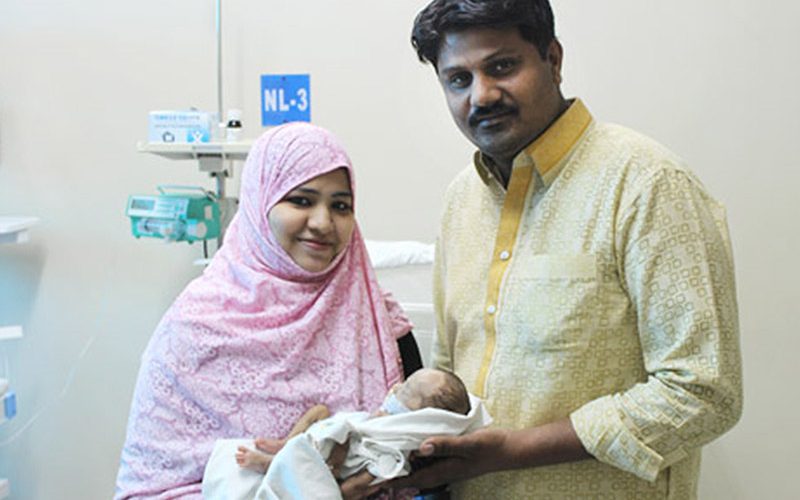Ahead of Time
I was enjoying my stay in Ammi’s (mother) womb, floating in the amniotic fluid and off and on kicking to make my presence felt. I had started feeling my parents’ loving auras. I could hear my elder sibling’s giggles. The day I became 25 weeks old, I felt that my mom, Bushra is distressed. She was in pain. My father, Arif rushed her to a maternity home as something had gone wrong and she had started bleeding. Doctor said that she and I are in danger, hence decided that I should make an early entry in this world.
So, I was born on December 3, 2018. It was a happy yet serious situation as I was too fragile. I weighed only 680 grams. I could literally be placed in a palm. My internal systems were not fully developed nor was I able to feed. I needed emergency care otherwise I’d die. But the hospital I was born in, ignored my parents’ plea to keep me admitted. My parents took me to several hospitals for post-natal care. After two days of running around, a well-wisher guided my parents to go to the Indus Hospital.
With hope and desperation, my parents came here and I was immediately admitted. They kept me in a strange machine – with an exotic light – which was giving me same warmth as Ammi’s womb. Since I was born premature and was not able to suck, they placed special tubes to provide me with special feed.
As days went by, due to my early arrival (premature birth) some complications developed in my gut and lungs and my heart became weak. At one point, I almost lost my struggle but the doctors’ and nurses’ selfless efforts and care kept me alive and saved me from having a brain hemorrhage. Despite the love, care, and comfort I received from the doctor and nurses, I wanted to be with my parents.
Finally, on the 57th day of my stay at the most loving place – The Indus Hospital – the Neonatologist, Dr Rehan Ali smiled at me and told my parents that I was now ready to go home. I had turned 31 week old and weighed 1.2 Kg. My parents were extremely delighted yet worried if something may go wrong. Dr Rehan assured them that I would be fine. They taught my parents how to carry me, feed me, and give me a bath and how to overall take care of me as I was special.
It was the best day of my life, when I comfortably snuggled into my mother’s arms as she gently and lovingly kissed me on my forehead. She thanked Allah for all the blessings and was extremely grateful to the doctors and other staff for saving my life.
Pakistan is ranked second among the top ten countries that account for nearly two-thirds of all deaths from preterm birth complications. According to an estimate, 860,000 premature births are recorded each year in Pakistan of which nearly 102,000 children die due to related complications and thousands of parents lose their beloved babies to the unaffordable expensive treatment. UNICEF




